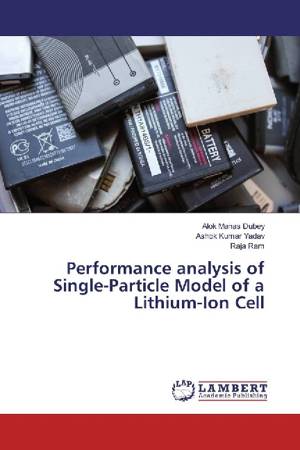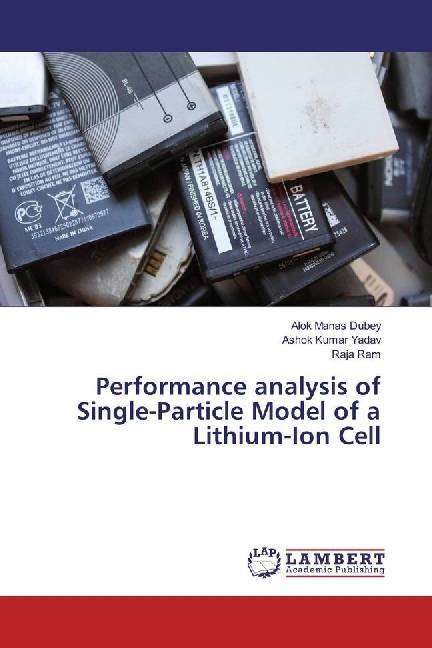
Je cadeautjes zeker op tijd in huis hebben voor de feestdagen? Kom langs in onze winkels en vind het perfecte geschenk!
- Afhalen na 1 uur in een winkel met voorraad
- Gratis thuislevering in België vanaf € 30
- Ruim aanbod met 7 miljoen producten
Je cadeautjes zeker op tijd in huis hebben voor de feestdagen? Kom langs in onze winkels en vind het perfecte geschenk!
- Afhalen na 1 uur in een winkel met voorraad
- Gratis thuislevering in België vanaf € 30
- Ruim aanbod met 7 miljoen producten
Zoeken
Performance analysis of Single-Particle Model of a Lithium-Ion Cell
Alok Manas Dubey, Ashok Kumar Yadav, Raja Ram
Paperback | Engels
€ 35,45
+ 70 punten
Omschrijving
The aim of study is to predict the performance of lithium-ion cells using the single particle representation of battery electrode model. The model is developed starting from the concentration solution theory and porous-electrode formulation, with Fick's law governing the diffusion of ions in the solid electrode. Since the solution of the governing equations is difficult due to their non-linear nature, simplifying assumptions are made that considerably reduce the computational time needed to predict cell performance. The model is then used to determine the concentration of lithium in solid phase and the electrode potential, assuming that the lithium concentration remains fixed in electrolyte. Further this model is compared with the pseudo two- dimensional model to simulate cyclic performance of lithium-ion cells under various operating conditions. The single particle modelling is studied for the degradation and its effect on the cyclic performance of lithium ion cell. The degradation of lithium-ion cells as a function of cycle number and parasitic reaction current density was also studied.
Specificaties
Betrokkenen
- Auteur(s):
- Uitgeverij:
Inhoud
- Aantal bladzijden:
- 60
- Taal:
- Engels
Eigenschappen
- Productcode (EAN):
- 9783330010864
- Uitvoering:
- Paperback
- Afmetingen:
- 150 mm x 220 mm

Alleen bij Standaard Boekhandel
+ 70 punten op je klantenkaart van Standaard Boekhandel
Beoordelingen
We publiceren alleen reviews die voldoen aan de voorwaarden voor reviews. Bekijk onze voorwaarden voor reviews.









